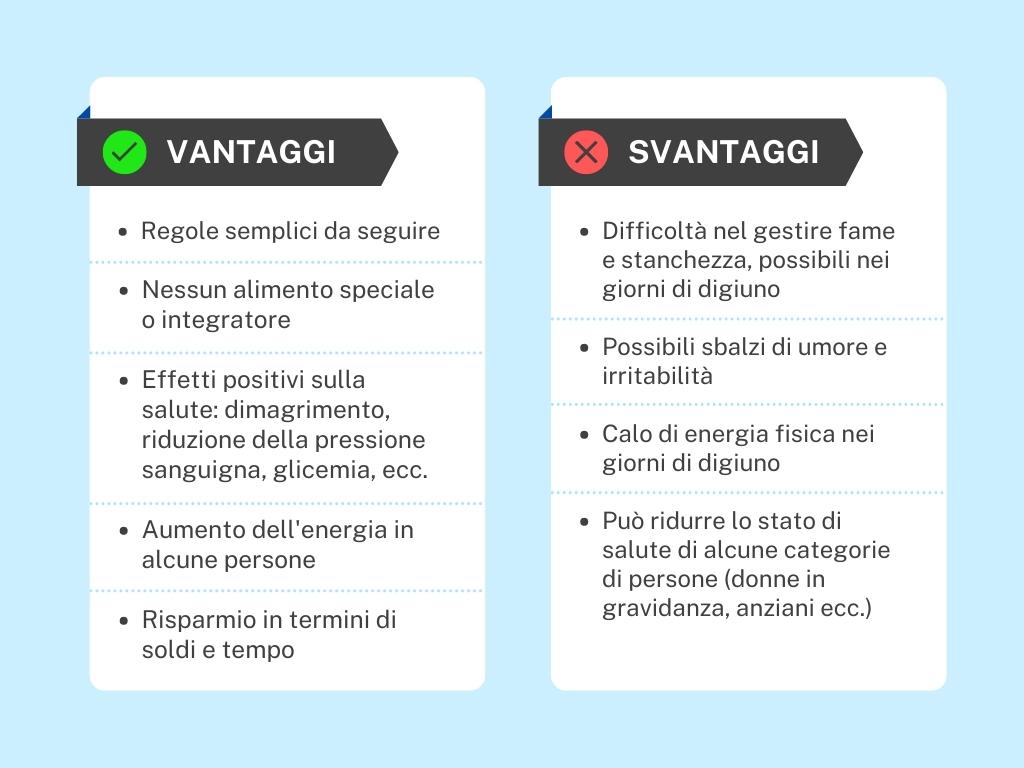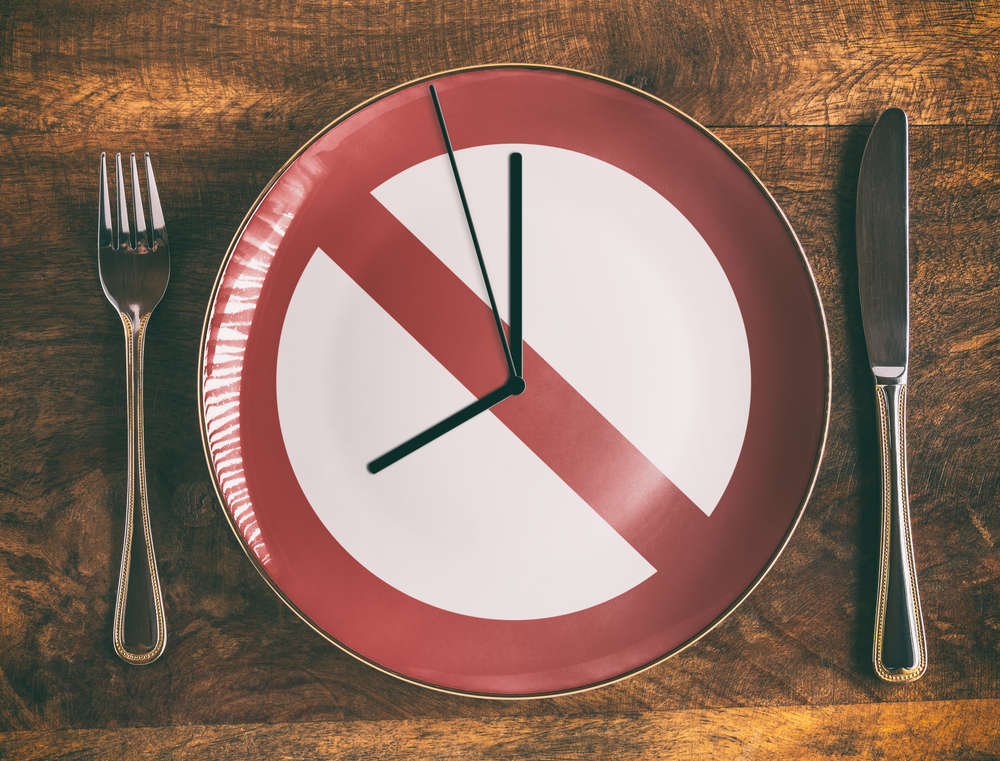Fasting has traditionally been part of many religious diets, but has recently begun to gain interest in the scientific community. In addition to weight loss, intermittent fasting could have additional health benefits in some categories of individuals. For some people, however, it is not recommended to practice it, except occasionally.
Intermittent fasting is a dietary pattern based on periods of calorie restriction alternating with periods of normal food intake, on a recurring basis. The main benefits of this type of diet are the regulation of blood glucose, an improvement in triglyceride and cholesterol levels, blood pressure levels and resting heart rate. It also seems that this fast serves to control free radicals, delaying the onset of diseases such as stroke, dementia and Parkinson’s disease. The periods of caloric restriction can be carried out in different ways, but in any case they are always very short periods of fasting, with abstinence from food for a maximum of 16 hours, for example from 8 pm until 12 am the following morning, skipping the breakfast meal only. It is therefore not a question of severe fasts with total abstention from food for the whole day, or prolonged over time for several days. This is why it is called fasting intermittent or intermittent.
This food approach not to be confused with the famous fasting-mimicking diet (also called the longevity diet) launched commercially some years ago by the Italian biologist Valter Longo and which has been very successful in some Western countries. In fact, these are 2 very different dietary regimes. The fasting scheme in which 16 hours of the day are left without food, is based on the 16/8 scheme, and means that for 16 hours you fast and for 8 hours you can eat and have 2 meals. As mentioned above, this scheme can be applied from 8pm to 12am the following morning, and in this case we will have the 2 meals between 12pm and 8pm at the most (so it is 16 hours of abstinence from food, with the help even during the night when there is not even the psychological conditioning of the desire for food). Another way to apply the 16/8 scheme is to skip dinner and then do the 16 hour fast between 4pm and 8am. In this case, the 2 daily meals will be a breakfast and a lunch, to be carried out at will between 8 and 16 of the day. After the last meal, even the smallest snack is avoided and only calorie-free liquids such as water, tea or coffee can be taken. in order to accustom the body to “work” to burn reserve fat and deposit accumulated in the tissues, in conditions of reduction of the absence of food. By doing so, you also avoid accumulating fat at the end of the day, which happens instead to those who are used to having dinner very late, without having the time to dispose of the energy accumulated just before going to bed.
Does intermittent fasting make you lose weight?
Certainly. This fact is confirmed by clinical experiences all over the world. In fact, intermittent fasting creates a caloric deficit that stimulates the metabolism: to lose weight well, however, this deficit must be associated with a healthy diet and proper physical activity. When I say “lose weight well” I mean that you can lose weight in various ways, for example by losing only excess fat and fluids (healthy weight loss) or by losing too much muscle and little fat (debilitating weight loss, which lowers the general state of health and unbalances the metabolism). Even a study conducted by a team from the University of California San Francisco proved that intermittent fasting it makes you lose weight just like any other diet that involves a reduction in daily calories and their consumption at unspecified times, but it can lead to a loss of muscle mass if not performed by adopting the right dietary rules during meals, such as having an adequate intake of proteins, drinking enough water, etc.
Advantages and disadvantages
The following table summarizes the main advantages and disadvantages of the practice of intermittent fasting.

Is fasting suitable for everyone?
It is not suitable for everyone and should therefore not be recommended or applied indiscriminately. For some individuals it can in fact worsen the state of health. Just because it works on some doesn’t mean it works for everyone. Although it is not a real diet, even in this case it is essential be followed by an experienced specialist, a doctor or nutritionist. This is because even though it is not a complete fast, such a diet is not suitable for everyone and is not recommended, for example, for children, growing children, pregnant or lactating women, the elderly (except in cases of rare of obese elderly and too dependent on food or sweets, for whom fasting can improve the state of health) and to people with a chronic disease. Professional sportsmen cannot follow calorie restriction or fasting diets, on pain of a general weakening of the organism and a decline in athletic performance that would compromise their work. The same applies to workers in particular sectors where the daily physical effort and the expenditure of calories is very high, such as eg. those of road construction (carpenters, bricklayers) or seasonal fruit pickers. In general, in all professions where a physical and tiring type of work is carried out, in which one stands or walks continuously, fasting or skipping canonical meals it is not recommended because it weakens and can lead to nutrient deficiencies in the body. These professions are in fact different from sedentary or retired people who do not carry out a regular work activity, and have a higher energy requirement that should not be neglected but rather adequately covered, just as happens for sportsmen.
Finally, any form of fasting is absolutely to be avoided in all cases of eating disorders (anorexia, bulimia), in which food therapy is part of an overall healing strategy and food must be managed in a much more prudent way than how it happens in healthy people, always with the help of the medical professional.
[di Gianpaolo Usai]
